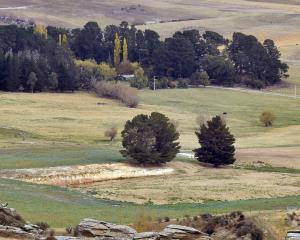
Independent and proper financial advice needed
In relation to Central Otago District Mayor Cadogan’s recent comment on possibly utilising a reverse mortgage towards payment of rates.
There is in fact a sounding board/support mechanism, as it is my understanding reverse mortgage providers require applicants to seek independent advice from a licensed financial adviser before proceeding. This is where the "appropriateness’’ aspect would be dealt to, as an applicant protection.
I would expect any financial adviser accepting this role to address all related issues to determine the applicant’s best way forward financially. Being a financial adviser myself, the important issue is what is appropriate for the applicant based on their financial position and circumstances.
The more a mayor, or anyone, can say or do to involve a licensed financial adviser to help with personal financial decision-making, the better.
And yes, this advice would generally come at a cost, but everything we do would involve a quoted fee, aimed at providing value.
Neville Caird
Dunedin
Time to talk
Te Pati Maori have certainly brought to a head the issue of what the Treaty of Waitangi means. Labour and National for too long have kept their heads in the sand, and Act New Zealand and New Zealand First are quite right to pursue the clarification of the Treaty articles and the legally undefined principles.
Dennis Horne in his letter (21.5.24) asks "so what?" if Maori did not cede sovereignty. He is right, sovereignty has been established through numerous elections. Hilary Calvert gives clarity to the issue in her easy to understand Opinion piece (6.6.24); Dr Harry Love’s Opinion piece (7.2.24) was an interesting read, though I am still deliberating on his 10.6.24 piece, "Taking on the challenge of the Treaty’s meaning".
But I agree with him that it is time politicians start to talk and find a path forward.
Ian McGimpsey
Owaka
Big questions
Will it ever be possible to agree about what the Treaty of Waitangi meant in 1840, let alone its relevance for today? It was however a political document, so why don’t whakapapa Maori MPs take up Harry Love’s repeated suggestion and start the process of finding common ground among themselves?
It will take not experts or lobby groups who can only give us their informed opinions, but a disparate group such as these MPs who at least have some democratic mandate, to demonstrate the potential for agreement among New Zealanders as a whole. These MPs could for example, begin by clarifying issues that Dr Love’s last article focused on: who did the Treaty give sovereignty to, and, over whom or what? Can a secular state be founded on what some would claim is a sacred document? Who is/are the guardians of the Treaty?
R. Adams
Wakari
Self-defence
Your correspondent M. K. Cowan (Letters ODT 7.6.24) may be right that Hamas practises what, under normal circumstances, would be called ‘‘terrorism’’. However, the situation in occupied Palestine is far from normal.
Where M. K. Cowan seems to have a deficient understanding is that under international law people living under occupation have the right to resist, which obviously means the ability to use armed force if necessary. In contrast, an occupying power such as Israel cannot legitimately claim the right of self-defence against a population it occupies and controls. In any event, self-defence does not include the current wholesale destruction of Gaza.
N. Yates
Dunedin
 Anti fast track legislation protesters in Auckland. PHOTO: GETTY IMAGES
Mad as hell and not taking it any more
Anti fast track legislation protesters in Auckland. PHOTO: GETTY IMAGES
Mad as hell and not taking it any more

I find it very difficult to take those anti fast track protesters seriously who want no more oil, no more gas etc when virtually each one of them is dressed in oil or gas-based clothing from head to toe. Don't they realise how unbelievable they appear to be?
I guess I am meant to overlook their hypocrisy but I find I am unable to do so. It is a little like all the paper bags these days instead of cheaper, less earth-using resources than plastic bags. Look at all the chemicals created in the paper-making process? I guess I am also meant to overlook those facts as well, again sorry but I find it very difficult.
Same with the manufacture of batteries for EV vehicles. Sorry, again, but I find that too very difficult.
They still don't seem to have a solution for the dead batteries that will soon be available for disposal in their thousands. Those who who want EVs should be responsible for the waste that they are creating. Not only is it right that EV owners should pay road tax but they should also have to pay a dead EV battery disposal tax.
Graham Woods
Geraldine
Address Letters to the Editor to: Otago Daily Times, PO Box 517, 52-56 Lower Stuart St, Dunedin. Email: editor@odt.co.nz












